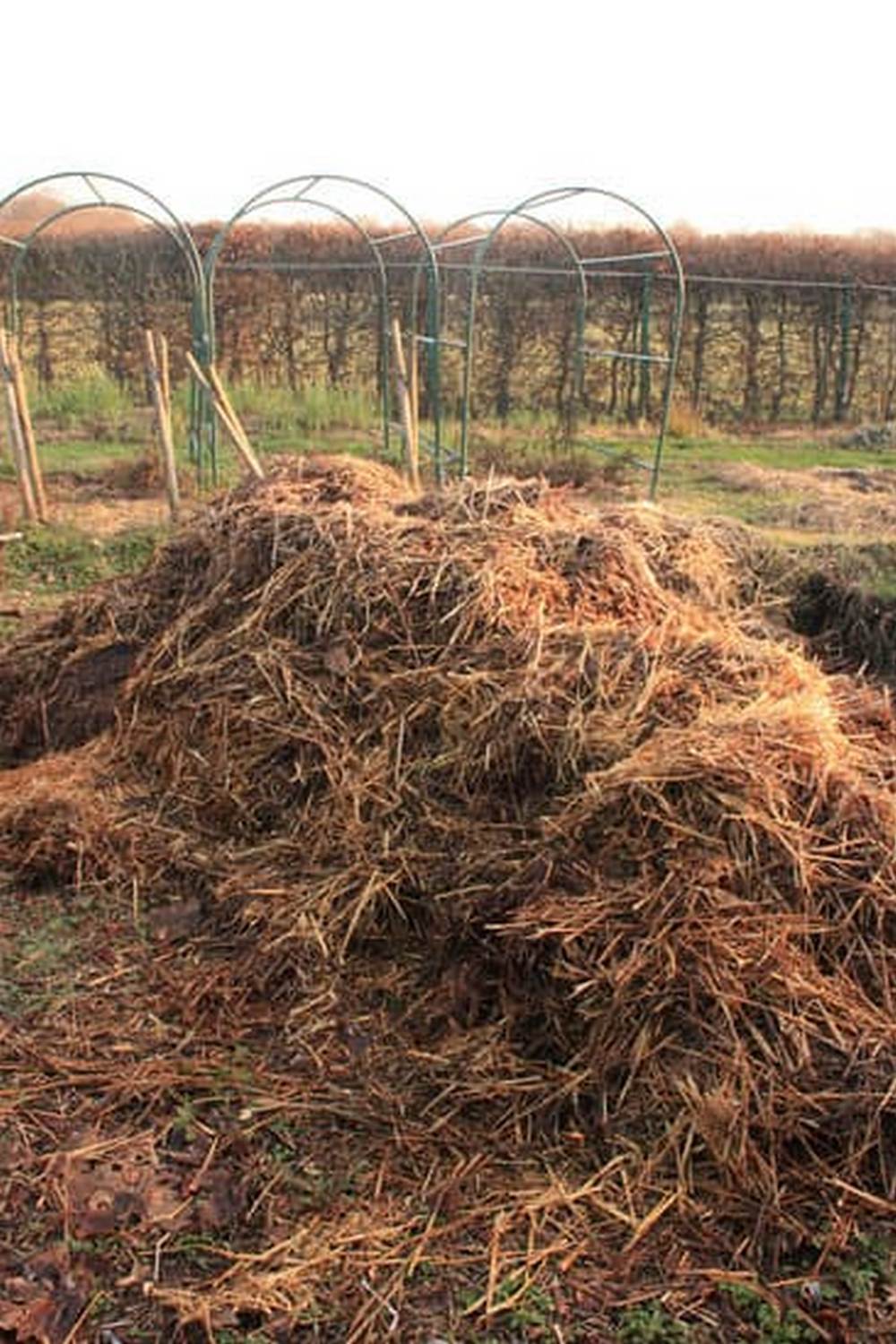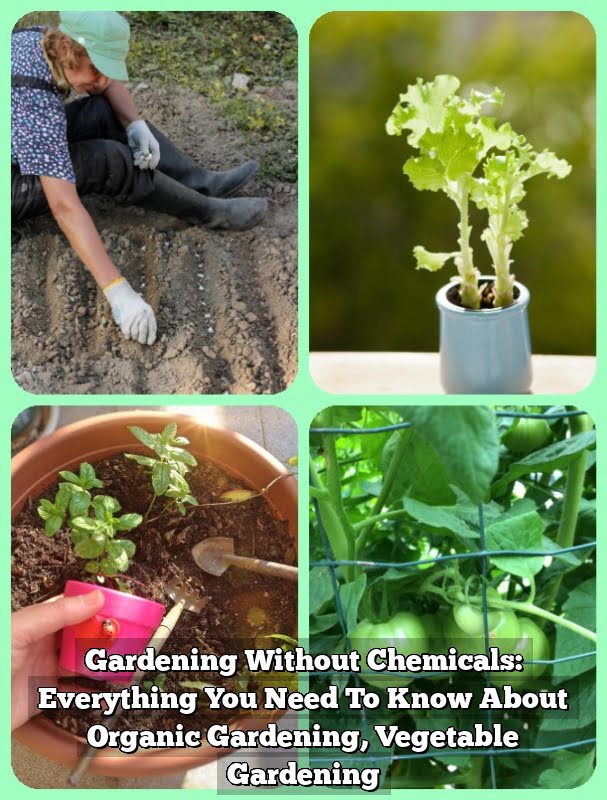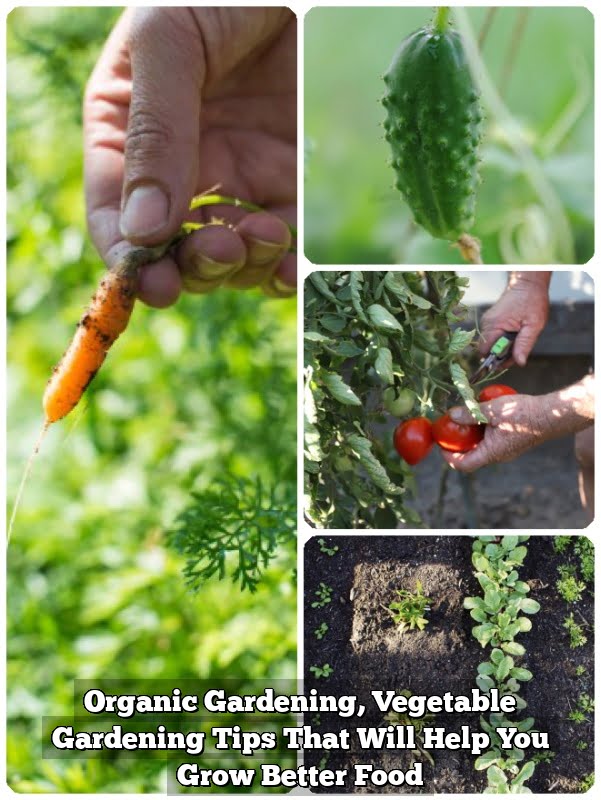Vegetable gardening in El Paso poses unique challenges and benefits due to its desert climate. With hot and dry weather conditions, gardeners must navigate the intricacies of cultivating thriving vegetable plants. Despite these obstacles, there are various strategies and techniques that can be employed to ensure a successful harvest.
One of the key considerations for vegetable gardening in El Paso is selecting the right vegetables that are well-suited to this region. Understanding the impact of the climate on plant growth is crucial for a fruitful outcome. Additionally, proper soil preparation and maintenance play a significant role in sustaining healthy vegetable plants in this environment.
As we delve into this guide on vegetable gardening in El Paso, we will explore not only the challenges but also the opportunities presented by this unique ecosystem. From discussing effective watering techniques to addressing common pests and diseases, we aim to provide valuable insights and practical tips for enthusiasts looking to embark on their own vegetable gardening journey in El Paso.
Best Vegetables to Grow in El Paso
When it comes to vegetable gardening in El Paso, choosing the right vegetables to grow is essential for a successful harvest. Due to the hot and arid climate of El Paso, certain vegetables thrive better than others in this region. Some of the best vegetables to grow in El Paso include tomatoes, peppers, squash, beans, and onions. These vegetables are well-suited to the desert climate and can produce bountiful yields with proper care.
Tomatoes are particularly well-adapted to the El Paso climate, as they love the heat and sunshine that this region offers. Varieties such as Roma tomatoes and cherry tomatoes do especially well in El Paso’s warm weather. Peppers, both sweet and hot varieties, also flourish in the intense heat of El Paso. Bell peppers and jalapenos are popular choices among local gardeners for their robust growth and flavorful fruits.
In addition to tomatoes and peppers, squash varieties like zucchini and yellow squash can thrive in El Paso’s conditions. These fast-growing plants appreciate the warmth and sunlight that abound in this desert region. Beans, such as green beans or pinto beans, are another great option for vegetable gardening in El Paso.
They are relatively easy to grow and can tolerate the high temperatures typically experienced in this area. Onions are also well-suited to the El Paso climate, making them a versatile choice for home gardeners looking to cultivate fresh produce.
| Vegetable | Best Growing Season |
|---|---|
| Tomatoes | Spring/Summer |
| Peppers | Spring/Summer |
| Squash | Spring/Summer |
Understanding the El Paso Climate
The unique climate of El Paso presents both challenges and opportunities for vegetable gardening enthusiasts. The hot and dry weather in this region can make growing vegetables more challenging than in other areas with milder climates. However, with the right strategies and techniques, successful vegetable gardening is still possible in El Paso. Understanding how the climate impacts vegetable plants and implementing appropriate solutions can help gardeners achieve a bountiful harvest.
To successfully navigate the hot and dry weather of El Paso when it comes to vegetable gardening, here are some key strategies to consider:
- Choose heat-tolerant varieties: Opt for vegetable varieties that are well-suited to hot climates, such as tomatoes, peppers, okra, and eggplant.
- Implement shade structures: Provide shade for your vegetable plants during the hottest parts of the day to prevent heat stress and sunburn.
- Practice water conservation: Due to the arid conditions in El Paso, it’s essential to use water wisely in your vegetable garden. Consider using drip irrigation or soaker hoses to deliver water directly to the roots of plants.
In addition to these strategies, it’s crucial to monitor your plants closely for signs of heat stress or dehydration. Adjusting watering schedules as needed and providing adequate mulch can help retain soil moisture and regulate temperature. By understanding the unique challenges posed by the hot and dry climate in El Paso and implementing targeted solutions, you can enjoy a successful vegetable gardening experience in this desert region.
Soil Preparation and Maintenance
When preparing the soil for vegetable gardening in El Paso, it is important to test the pH levels to ensure they are suitable for plant growth. Most vegetables prefer slightly acidic soil with a pH range between 6.0 and 7.0. Adding lime or sulfur as needed can help adjust the pH levels accordingly. Additionally, mulching the soil with organic materials like straw or bark can help regulate temperature, retain moisture, suppress weeds, and enhance overall soil health.
Regular maintenance of the soil is key to sustaining healthy and productive vegetable plants in El Paso. This includes weeding regularly to prevent competition for nutrients and water, as well as adding fertilizer throughout the growing season to provide essential nutrients that may be lacking in the soil.
Crop rotation is also a beneficial practice that helps reduce disease pressure and replenishes nutrients in the soil naturally over time. By investing time and effort into preparing and maintaining the soil properly, vegetable gardeners in El Paso can enjoy bountiful harvests of fresh produce year-round.
| Aspect | Recommendation |
|---|---|
| Soil Amendment | Incorporate organic matter like compost or aged manure. |
| pH Levels | Test pH levels and adjust using lime or sulfur if necessary. |
| Mulching | Use organic materials like straw or bark for temperature regulation. |
Watering and Irrigation Techniques
When it comes to vegetable gardening in El Paso, one of the most crucial aspects to consider is watering and irrigation techniques. The hot and dry weather in this desert climate poses a significant challenge for maintaining healthy and thriving vegetable plants. Without sufficient water, vegetables can wither and die quickly in the scorching sun. Therefore, understanding the importance of proper watering practices is essential for successful gardening in El Paso.
One key strategy for effective watering in vegetable gardening in El Paso is to water deeply but infrequently. This means allowing the water to penetrate deep into the soil to encourage strong root growth, rather than shallow and frequent watering that can result in weak root systems. Installing a drip irrigation system or soaker hoses can be beneficial in delivering water directly to the roots of the plants while minimizing evaporation losses, especially important in this arid climate.
Additionally, timing is crucial when it comes to watering vegetable plants in El Paso. It is best to water early in the morning or late in the evening to reduce evaporation rates and ensure that plants have access to moisture during the hottest parts of the day.
Mulching around plants can also help retain soil moisture, reduce weed growth, and regulate soil temperature, all of which are important factors for successful vegetable gardening in El Paso‘s challenging climate. By implementing these proper watering and irrigation techniques, gardeners can help their vegetable plants thrive despite the arid conditions of El Paso.
Pest and Disease Management
Pests and diseases can pose a challenge to vegetable gardening in El Paso due to the unique climate of the region. However, with the right knowledge and strategies, gardeners can effectively manage these issues while maintaining an organic approach to ensure healthy and productive plants.
Common Pests in El Paso
One common pest that gardeners face in El Paso is the spider mite, which thrives in hot and dry conditions. These tiny pests feed on plant sap, causing discoloration and damage to leaves. Additionally, aphids are another common pest that can quickly infest vegetable plants, sucking sap from the leaves and spreading diseases. Identifying these pests early on is crucial for effective management.
Organic Pest Management
To combat pests in vegetable gardens without resorting to chemical pesticides, there are several organic methods that gardeners can employ. One effective strategy is companion planting, where certain plants are grown together to deter pests or attract beneficial insects that prey on harmful ones. For example, planting marigolds near vegetable crops can deter aphids and other pests. Additionally, homemade remedies such as garlic or neem oil sprays can help control insect infestations.
Disease Prevention
In addition to pests, diseases can also impact vegetable plants in El Paso. Fungal diseases like powdery mildew and bacterial infections can thrive in the hot and humid conditions of a garden. To prevent diseases from taking hold, it is essential to practice good sanitation by removing diseased plant material promptly and ensuring proper air circulation around plants.
Using disease-resistant varieties of vegetables can also help mitigate the risk of infection. Regularly inspecting plants for signs of disease and addressing issues promptly is key to maintaining a healthy garden in El Paso.
Container Gardening in El Paso
Benefits of Container Gardening
One of the primary benefits of container gardening in El Paso is the ability to control the soil quality, which is crucial for successful vegetable cultivation in this area. Gardeners can choose the perfect potting mix tailored to the specific needs of each plant.
Additionally, containers offer better drainage compared to compacted desert soils, reducing the risk of root rot and other water-related issues. Container gardening also allows for easier weed control and less bending or kneeling during maintenance tasks.
Choosing Suitable Containers
When embarking on vegetable gardening in El Paso with containers, it’s essential to select the right pots or containers for optimal plant growth. Ensure that containers have sufficient drainage holes to prevent waterlogging, as excess moisture can be detrimental to vegetable plants in this arid climate.
Additionally, consider the size of your plants when choosing containers; larger vegetables like tomatoes will require bigger pots to accommodate their root systems. Lastly, opt for lightweight and durable materials such as plastic or fiberglass to make moving your container garden more manageable.
By embracing container gardening in El Paso, residents can overcome challenges related to limited space and poor soil quality while still enjoying a bountiful harvest of fresh vegetables at home. With proper care and attention to plant requirements, container gardens can thrive year-round in this unique desert environment, providing a rewarding experience for both novice and experienced gardeners alike.
Community Resources and Workshops
El Paso is a unique location for vegetable gardening, with its hot and dry climate presenting both challenges and opportunities for aspiring gardeners. However, with the right knowledge and resources, it is possible to cultivate a flourishing vegetable garden in this desert region. One of the key ways to gain support and enhance your gardening skills is by tapping into the various community resources, gardening clubs, and workshops available in El Paso.
Here are some local resources that can offer valuable assistance and guidance to individuals interested in vegetable gardening in El Paso:
- El Paso Master Gardeners: This volunteer program provides training and resources for individuals looking to improve their gardening skills. They offer workshops, classes, and events focused on sustainable gardening practices suitable for the El Paso climate.
- El Paso County AgriLife Extension: This organization offers educational programs, workshops, publications, and online resources related to agriculture, horticulture, and natural resources. Their experts provide advice on soil health, water conservation, pest management, and more.
- Community Gardens: Joining a community garden can be a great way to connect with other local gardeners, share tips and experiences, and access shared tools or resources. It also provides an opportunity to contribute to local food production efforts.
By participating in these community resources and workshops, vegetable gardening enthusiasts in El Paso can learn from experienced gardeners, stay informed about best practices for the region’s unique climate conditions, and foster a sense of camaraderie within the gardening community. With ongoing support from these organizations, individuals can develop their skills and passion for growing vegetables in El Paso while contributing to the local food movement.
Conclusion
In conclusion, vegetable gardening in El Paso presents a unique set of challenges due to the hot and dry climate of the region. However, with proper knowledge and techniques, gardeners can still cultivate a bountiful harvest of vegetables. By understanding the specific needs of plants that thrive in this environment, such as peppers, tomatoes, and squash, individuals can successfully grow their own produce right in their backyard.
It is crucial for aspiring vegetable gardeners in El Paso to focus on soil preparation and maintenance to ensure healthy plant growth. By enriching the soil with organic matter and providing adequate drainage, gardeners can create an ideal environment for their vegetables to flourish. Additionally, implementing proper watering and irrigation techniques is essential in conserving water while keeping plants hydrated in the arid climate of El Paso.
Furthermore, community resources and workshops play a vital role in supporting vegetable gardening enthusiasts in El Paso. By connecting with local gardening clubs and attending educational workshops, individuals can expand their knowledge, exchange tips with fellow gardeners, and access valuable resources to enhance their gardening experience.
With dedication, perseverance, and a bit of creativity – whether through traditional ground planting or container gardening – anyone can embark on a rewarding journey into vegetable gardening in El Paso. Start your own vegetable garden today and reap the benefits of homegrown produce right at your fingertips.
Frequently Asked Questions
What Vegetables Grow Well in El Paso?
El Paso’s climate and soil composition make it conducive for growing a variety of vegetables. Some popular options include tomatoes, peppers, squash, onions, and beans. These vegetables thrive in the warm, arid conditions of El Paso.
Is El Paso Good for Gardening?
El Paso is indeed a great place for gardening due to its abundant sunshine, low humidity, and mild winters. The city’s climate allows for year-round gardening with minimal risk of frost damage, making it an ideal location for both beginner and experienced gardeners.
What Gardening Zone Is El Paso TX?
El Paso lies within USDA Hardiness Zone 8a. This means that the city experiences an average annual extreme minimum temperature between 10 to 15 degrees Fahrenheit. Gardeners in this zone can enjoy a long growing season with the ability to grow a wide range of plants that are suited to this particular climate.

If you’re looking to get into vegetable gardening, or are just looking for some tips on how to make your current garden better, then you’ve come to the right place! My name is Ethel and I have been gardening for years. In this blog, I’m going to share with you some of my best tips on how to create a successful vegetable garden.





